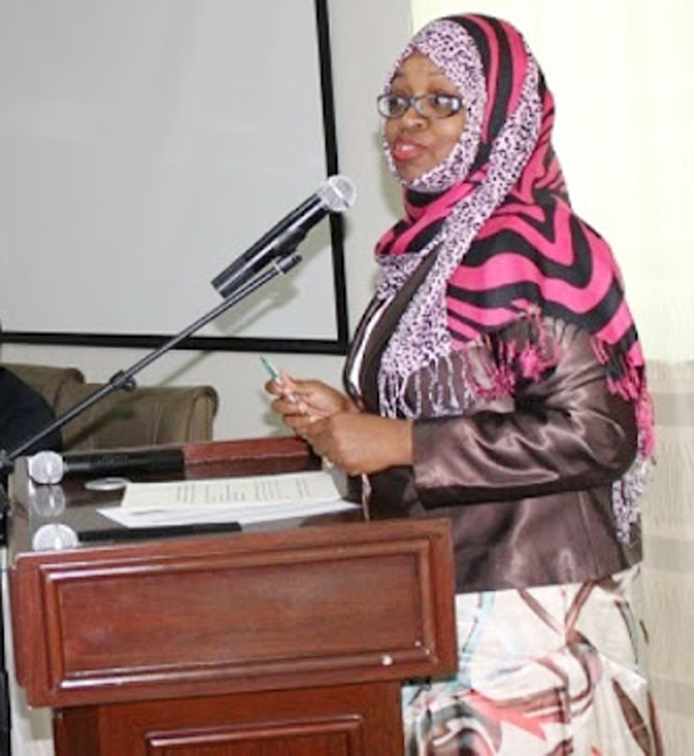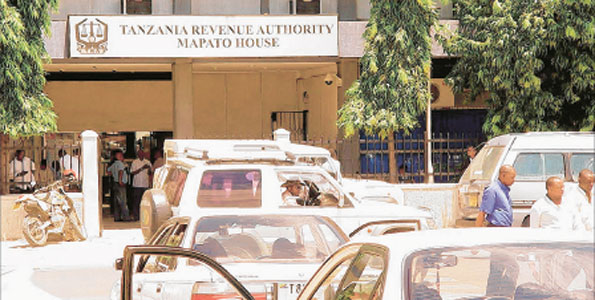-
“Tax privileges –in the form of tax exemptions or a reduced tax rate—may be conceded only in favour of the final consumer…Tax exemptions on commodities must be rejected because of cumulative effects resulting from the denial of the input tax deduction”
-
“These are our recommendations: that it is known from experience that some developing countries deem it necessary to apply a zero rate to vital goods and services. If they do so, a zero rate should be restricted to as few goods and services as possible” –Experts.
A Detailed Report By ERNEST AMBALI
The Government of Tanzania has made a commitment to get rid of unproductive tax exemptions. Predictably, this commitment has met resistance, but both the Government and the general public are advancing good reasons to do away with unproductive tax exemptions.
The long awaited drive was recently unveiled in Dar es Salaam by the Minister for Finance and Economic affairs Saada Salum Mkuya, and later explained in Parliament.
In a pre-budget briefing to the Cabinet in May, where she revealed for the first time that the Government budget for fiscal year 2014/15 would be Tsh. 19.7 tr/- (about $12 billion), the Finance Minister said the Bill for the law that would expunge unproductive tax exemptions would be tabled in parliament this year.
The business community received the news with shock—predictably. A post on the Industrial Mineral Miners’ website reported on May 23: “Tanzania has drafted a new law abolishing tax incentives for miners, a move aimed at increasing national income from the country’s resource sector. The Value Added Tax Bill 2014, which is yet to be tabled before the Tanzanian parliament, seeks to cut tax waivers .”
The Website added: “Changes to the country’s ‘mining friendly’ tax system could affect plans by international firms to develop industrial minerals deposits in Tanzania, which include Kibaran Resources’ Mahenge graphite project and Peak Resources’ Ngualla rare earths operation.”
But the nation supports the Government plan, if comments from the general public is anything to go by. A commentary in the Kiswahili newspaper Mwananchi recently called for scrapping of tax exemptions.
“Tanzania leads other East African nations on the issuance of huge tax exemptions while her national budget remains over 30% donor dependent ,” the newspaper complained. “You may question, what is the reason for these tax exemptions? if it is not corruption.”
The government failed to reach its tax collection target by an average of Tsh. 453 billion between fiscal year 2008/09 and 2009/10 because it gave tax exemptions to the tune of Tsh. 724 billion, Mwananchi reported, then concluded: “Why are we destroying this country through useless tax exemptions? We should stop tax exemptions”.
A government statement issued during the on-going budget session at Parliament in Dodoma, central Tanzania, explained that the new tax exemption bill is meant to increase revenue in order to reduce donor dependency.
The statement was issued in response to a question by the member of parliament Maria Hewa (Special Seats), who wanted to know why the government was not collecting taxes in sufficient quantities to enable it disburse funds to various district councils for implementation of development projects. She had complained that due to poor tax collection strategies, the government was not disbursing funds to various district councils in the country for implementation of development projects.
At the Cabinet briefing back in Dar es Salaam, the Minister for Finance and Economic affairs had explained that this problem would be solved in part by the removal of tax exemptions. Recipients of the Tsh. 19.7 tr/-Government budget would be major sectors that include agriculture, education, water, energy and infrastructure, Mkuya said. This year’s budget compares with Tshs 18.24tr/- spent during the 2013/14 budget.
In late 2013, the Minister of State in the President’s Office, Stephen Wasira, had said the 2014/2015 recurrent expenditure would be Tshs 14.642 trillion, while Tshs 5.267 trillion would be allocated to development projects, equivalent to 26.45 percent of the government’s budget.
He said development spending would focus on infrastructure, agriculture, manufacturing and tourism. Infrastructure projects would involve construction of roads, railways, ports and power plants to ease the country’s energy shortages.
Mr. Wasira said the government planed to borrow Tshs 1.148 trillion in 2014/15 from external commercial lenders and Tshs 2.898 trillion from domestic sources.
Tanzania, one of Africa’s biggest per capita aid recipients, expects to receive Tshs 3.772 trillion in loans and grants from development partners in 2014/15, he said in a speech in parliament.
If the current drive to expunge unproductive tax exemptions should mature and succeed, the government will have accelerated its drive towards self-sufficiency as envisaged when it introduced the Tanzania Revenue Authority (TRA) 17 years ago.
After several years of trial and error—implementing unproductive tax systems through departments tethered to the finance ministry and earning a pittance of revenue—the Government ultimately struck ‘a gold vein’’ in the formation of the TRA in June 1996.
One of the first tasks the TRA Board undertook was to define a vision for the Authority to guide its operations , says the former TRA Board of Directors Chairman, Professor Benno J. Ndullu, in the Authority’s first report for fiscal year 1996/97.
“The ultimate goal is to establish a sustained revenue base to enable Tanzania finance her recurrent and development needs,” he says, adding that this would then encourage–albeit gradually—to reduce reliance on foreign aid. Although the TRA flexed its muscle during the first three years of its operations, that it was coming with power that would leave no stone unturned yet friendly to tax payers, the government thought it needed “a reinforce.”
The reinforce was introduced in 1998 known by the acronym VAT. Consultants educated the TRA through a manual issued before implementation of this new tax. The manual advised that “a simple application of VAT and correspondingly high tax revenue, are only guaranteed if there are as few exemptions to the rule as possible.
“Tax privileges –in the form of tax exemptions or a reduced tax rate—may be conceded only in favour of the final consumer…Tax exemptions on commodities must be rejected because of cumulative effects resulting from the denial of the input tax deduction
“These are our recommendations: that it is known from experience that some developing countries deem it necessary to apply a zero rate to vital goods and services. If they do so, a zero rate should be restricted to as few goods and services as possible,” the consultants advised.
On budgetary effects, comprehensive scope of application of the VAT “facilitates higher tax revenue than a turnover tax as for example, a sales tax which is limited to specific commodities and covers only the production or processing stage and near the subsequent wholesale and retail stage and services.
When addressing business persons at the now Serena Hotel in Dar es Salaam six years ago, President Jakaya Kikwete posed a question: “Do all these tax exemptions by the Government deserve this gesture?’’. He posed this question after saying his State House desk had been flooded with information saying that some of the beneficiaries of tax exemptions abused them.
Some of the information which had also been leaked to the media said some of the institutions and individuals, including religious agencies, teachers and lecturers sold their tax exempted goods including motor vehicles. For example, one non-governmental organization was caught red-handed re-packing tax exempted sugar. TRA investigators simply demanded duty from the imported commodity packed in tones of bags.
Abuse of exemptions on the VAT raised serious concern at the conference of the Value Added Tax Administrators in Africa Forum (VADA) held in Arusha in November 2012. The over 12 African countries which attended the conference strongly argued against granting of exemptions on the VAT.
VADA’s vision is to create a viable international body to serve as a rallying point for the “solving of African tax problems in the context of revenue mobilization for development of the economies of African countries.”
Both local and foreign tax experts who sympathize with the plight Tanzania faces of poverty amid immense natural taxable resources have advised the Government to expunge tax exemptions on the VAT which was introduced to cure tax problems.
If the National Assembly will pass The Value Added Tax Bill of 2014, it will have done substantial justice to Tanzania’s development endeavor, as the country should feed substantially on VAT if the TRA is able to capture all those registered for paying the VAT.





